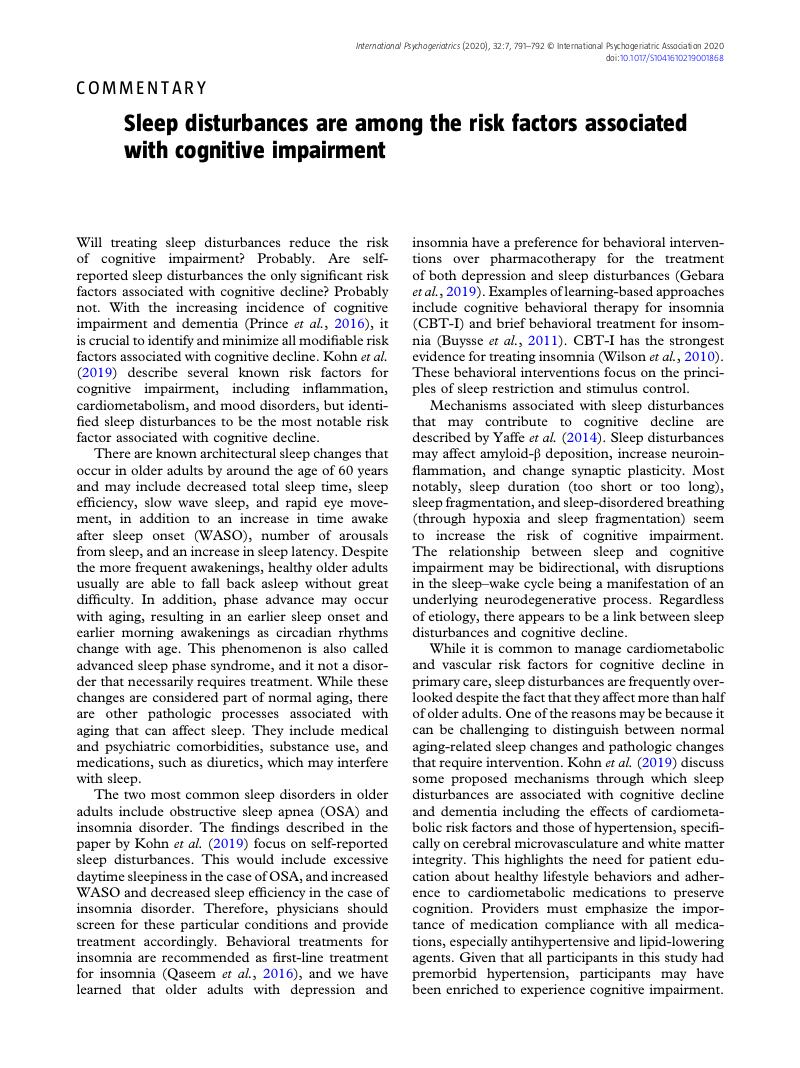Crossref Citations
This article has been cited by the following publications. This list is generated based on data provided by Crossref.
Qian, Dorothy
and
Wong, Jean
2022.
Sleep disturbances, sleep-disordered breathing, and cognitive impairment in older adults: perioperative implications.
International Anesthesiology Clinics,
Vol. 60,
Issue. 2,
p.
20.





